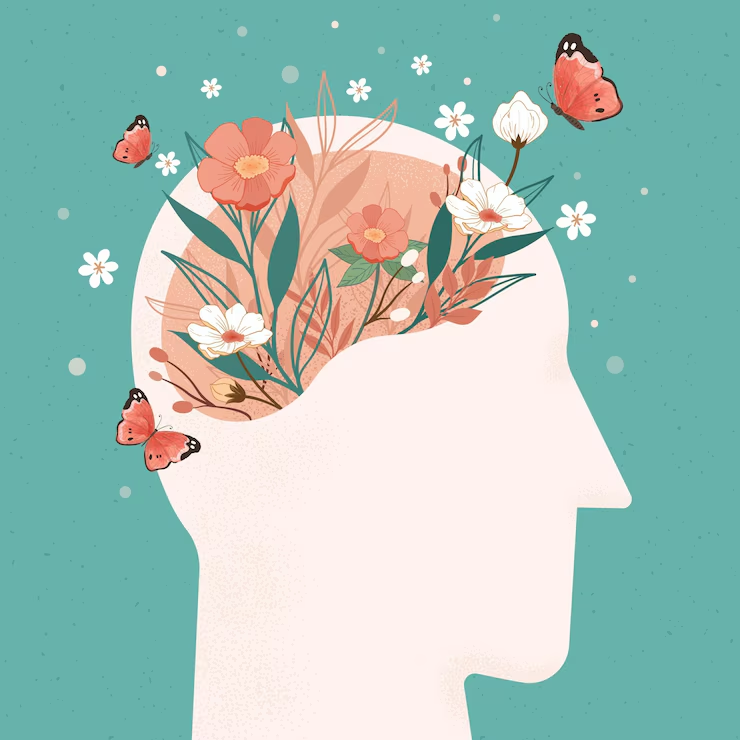Introduction :Building Emotional Resilience
In today’s fast-paced and often overwhelming world, emotional resilience is more important than ever. Emotional resilience refers to the ability to adapt to stressful situations, recover from setbacks, and maintain emotional well-being despite challenges. Cultivating resilience is key to safeguarding mental health, especially in a society that constantly demands more from us. In this blog, we will explore what emotional resilience is, why it is essential, and practical strategies to strengthen it in our daily lives.
1. Understanding Emotional Resilience
Emotional resilience isn’t about avoiding stress or challenges but about developing the capacity to bounce back from them. People with strong emotional resilience are not immune to difficulties but possess the tools to handle adversity effectively. Resilience can be thought of as a muscle that strengthens with use and practice.
- Flexibility in Thinking: Resilient individuals can shift perspectives and adapt their thinking based on the situation. They are solution-oriented and less likely to be paralyzed by stress.
- Emotional Regulation: Resilience also involves managing emotional responses. Instead of becoming overwhelmed by negative emotions, resilient people are better able to acknowledge their feelings and regulate them.
- Optimism: A positive outlook doesn’t mean ignoring problems but approaching challenges with the belief that they can be overcome. Optimism fuels the motivation to persist even when things get tough.
2. Why Emotional Resilience Is Important for Mental Health
Resilience plays a vital role in maintaining mental health. Without it, even minor stressors can lead to anxiety, depression, or burnout. Here are a few reasons why emotional resilience is essential for mental well-being:
- Protection from Stress: People with emotional resilience experience less stress or recover from it faster. They have developed coping mechanisms that allow them to handle pressure without feeling overwhelmed.
- Prevention of Mental Health Issues: Emotional resilience can reduce the likelihood of developing mental health issues such as anxiety or depression. It equips individuals with the skills needed to navigate life’s ups and downs while maintaining a sense of control.
- Improved Physical Health: Mental and physical health are closely connected. Resilience contributes to better physical health, including lower blood pressure and a stronger immune system. When the mind is healthy, the body benefits too.
- Better Relationships: Resilience enables individuals to manage conflicts and stress within relationships more effectively. Emotionally resilient people tend to have healthier, more supportive relationships because they can communicate openly and manage difficult situations calmly.
3. Strategies to Build Emotional Resilience
Building emotional resilience is a long-term process that requires self-awareness, practice, and patience. Below are some effective strategies to enhance your resilience and protect your mental health.
- Practice Self-Compassion: Be kind to yourself during tough times. Instead of criticizing yourself for mistakes or setbacks, offer yourself the same understanding you would give to a friend. Self-compassion helps reduce self-imposed stress and fosters emotional healing.
- Build Strong Connections: Cultivating a supportive social network is key to resilience. Surround yourself with positive people who can provide emotional support during challenging times. Having someone to talk to can alleviate stress and help you gain perspective.
- Develop Problem-Solving Skills: Resilience often involves finding solutions to difficult problems. Work on your problem-solving skills by breaking down large challenges into manageable steps. A structured approach to problem-solving reduces feelings of being overwhelmed.
- Practice Mindfulness and Meditation: Mindfulness helps you stay present and focused on the moment, which reduces stress and prevents overthinking. Meditation practices, even if just for a few minutes a day, can improve your ability to regulate emotions and increase overall mental clarity.
- Exercise Regularly: Physical activity is a natural stress reliever. Regular exercise releases endorphins, which boost mood and help you feel more in control. Incorporating physical activity into your daily routine strengthens both your mental and physical resilience.
- Focus on What You Can Control: Many stressors arise from things beyond our control. Instead of worrying about these, focus on what you can influence. This mindset shift can reduce anxiety and increase feelings of empowerment.
- Cultivate Optimism: Train your mind to focus on the positive aspects of a situation. This doesn’t mean ignoring problems but recognizing that challenges are temporary and solutions are within reach. Practicing gratitude, even for small things, can also boost optimism.
4. Overcoming Setbacks with Resilience
Resilience isn’t about being unbreakable; it’s about learning to recover and grow from setbacks. Everyone faces challenges, but what distinguishes resilient people is their ability to reflect on their experiences and use them as opportunities for growth. Here are ways to overcome setbacks:
- Acknowledge Your Feelings: It’s essential to recognize and accept your emotions, whether they are sadness, anger, or frustration. Bottling up emotions can lead to more significant problems down the line. Once you acknowledge how you feel, you can take constructive steps forward.
- Reframe Negative Thoughts: Try to reframe challenges as opportunities for growth. Instead of thinking, “I can’t handle this,” shift your mindset to “This is tough, but I can learn something from it.” Reframing helps to reduce negative self-talk and boosts confidence.
- Set Small, Achievable Goals: When recovering from a setback, it’s helpful to set small, attainable goals rather than trying to tackle everything at once. Each small victory boosts motivation and helps rebuild your emotional resilience.
- Seek Support: Don’t hesitate to reach out to friends, family, or professionals when dealing with setbacks. External support provides new perspectives and emotional validation that can accelerate the recovery process.
Conclusion
Emotional resilience is crucial for maintaining mental health in our fast-paced world. By developing self-awareness, practicing mindfulness, and building a strong support system, you can enhance your ability to handle stress and bounce back from adversity. Remember, building resilience is a continuous process, but it is one of the most valuable tools you can develop for a balanced, healthy life.
Building Emotional Resilience


1 thought on “Building Emotional Resilience: How to Protect Your Mental Health in a Fast-Paced World”